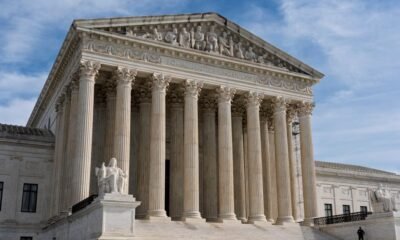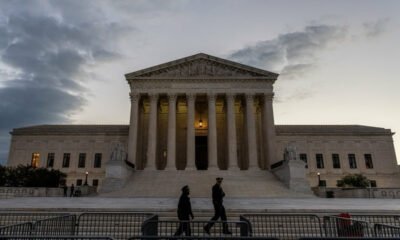2020 election
Special Counsel Jack Smith Unveils Fresh Evidence in Trump’s 2020 Election Saga

WASHINGTON — A substantial and partly redacted motion was unsealed Wednesday by U.S. District Judge Tanya Chutkan, detailing special counsel Jack Smith’s argument that former President Donald Trump acted outside his official duties when he allegedly conspired to overturn the 2020 election results. This motion, marking a key moment in the ongoing legal battle, focuses on Trump’s actions in several states, including Arizona, Georgia, and Pennsylvania.
Central to the motion is the claim that Trump collaborated with a network of private lawyers and political allies to disrupt the electoral process. Smith’s filing, consisting of 165 pages, alleges efforts to submit false slates of electors to Congress. This move was intended to present Trump as the victor over Joe Biden in key battleground states, according to the special counsel.
The case has encountered significant delays, partially due to Trump’s assertions of criminal immunity related to his actions following the election. The U.S. Supreme Court has clarified that while former presidents may enjoy some immunity for official capacities, they are not shielded from personal misconduct.
Smith’s motion provides extensive evidence of Trump’s communications and actions across multiple states, highlighting a pattern of false claims regarding voter fraud. In Arizona, Smith outlines how Trump and his co-conspirators allegedly manipulated fraud figures, shifting claims erratically and without substantiation.
Trump’s communications with officials in Georgia reveal that he was informed his fraud claims were unfounded. Despite this, he persisted with public accusations, indicating a deliberate attempt to mislead voters. In Michigan, Trump sought to gather evidence of alleged fraud, struggling to find any legitimate basis for his claims.
The document further discusses Trump’s behaviors in Nevada and Pennsylvania, detailing how he continued to promote baseless fraud allegations despite contrary guidance from state officials. In Wisconsin, after a recount confirmed Biden’s victory, Trump rebuffed the ruling of the state Supreme Court, which ultimately recognized Biden’s electors.
As allegations mounted against him, Trump and his associates reportedly shifted strategies, aiming to create fake electors in states where he had lost, attempting to present these to Vice President Mike Pence as legitimate. Smith maintains that Trump’s pressure on Pence regarding the certification of the Electoral College vote was not part of any official duties, potentially exposing him to legal accountability.
Smith’s filing portrays a calculated effort by Trump to leverage misinformation and exploit the vulnerability of the electoral process. The legal ramifications for Trump’s actions, particularly concerning the events surrounding January 6, 2021, continue to unfold as the case progresses in court.


















